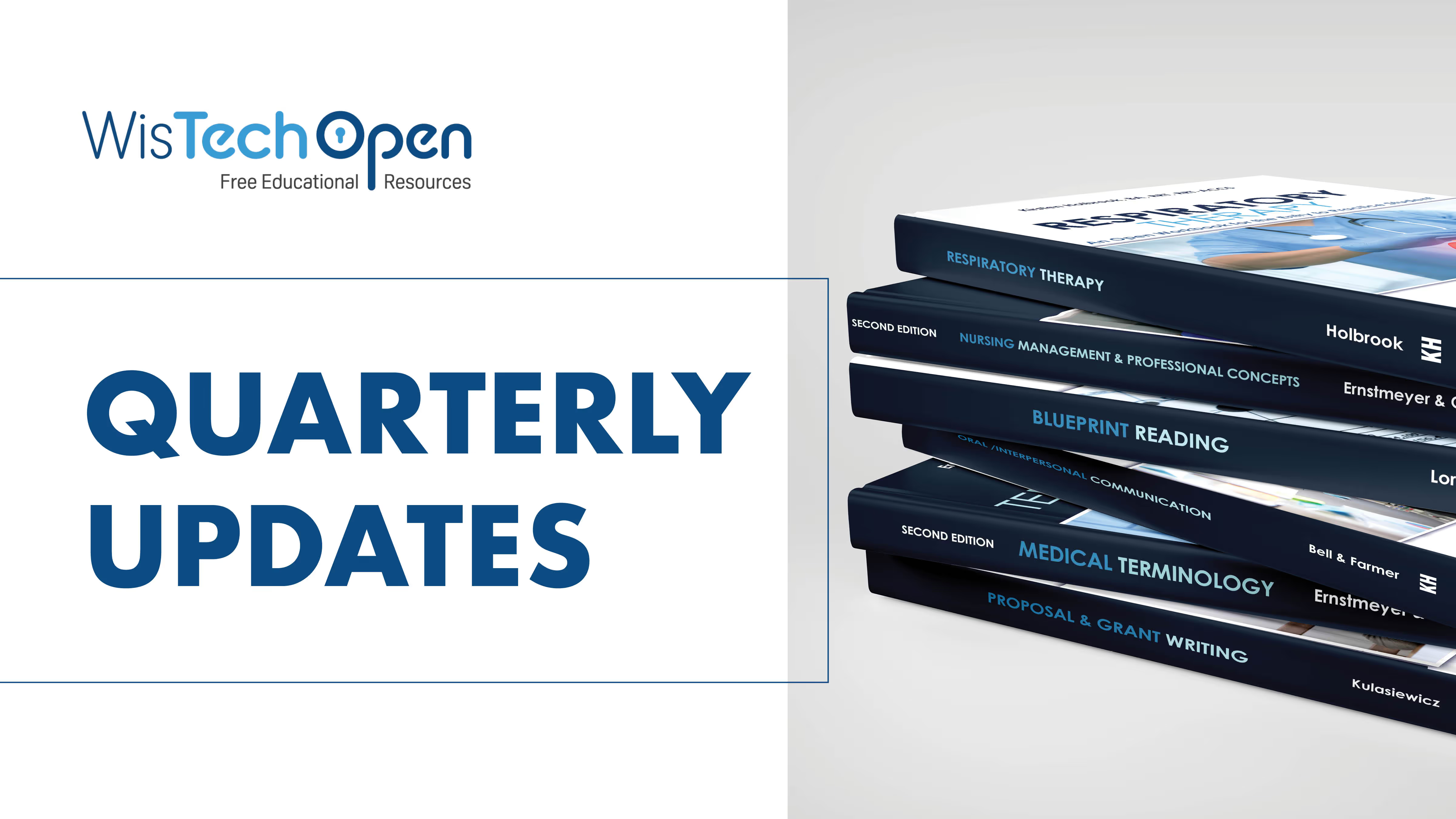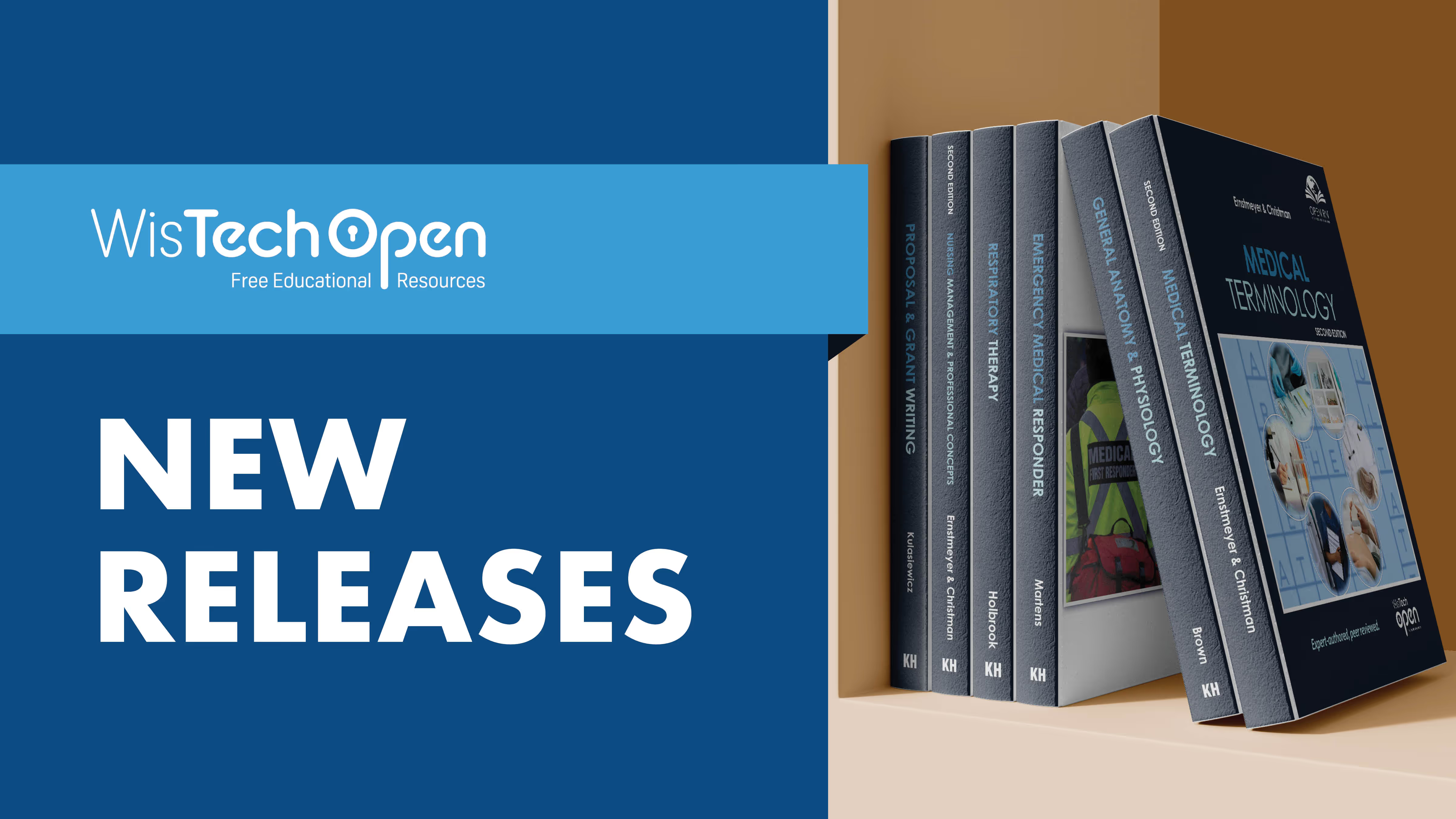
Quarter Report - March 2023
Quarterly Update: Project Accomplishments
Here is a high-level overview of the project’s accomplishments this quarter:
- 📊 Google Analytics shows continued global use of Open RN textbooks, with over 7.5 million page views by more than 3 million international users. Additionally, 58 colleges and universities have adopted print versions, and 598 institutions have downloaded free PDF versions.
- 📘 A sixth OER textbook, Advanced Nursing Skills, completed peer review in February and will be published by May 2023. A low-cost print version is expected by September. Based on WTCS faculty input, skills demonstration videos were created, embedded in the book, and uploaded separately to save students money.
- 🧾 The Nursing Assistant textbook was published in January 2023 using Open RN development workflows. It serves as a prerequisite for many health programs and is expected to save students over $654,000 annually. Embedded skills videos were also included.
- 🎥 Video usage is growing. As of March 1, Open RN videos had 414,901 views, over 4,200 hours of watch time, and 777 subscribers.
- ⚙️ The ADAPT platform was customized for the “Next Gen RN” project. It was beta tested by WTCS faculty in February and will launch in April along with training materials. A collection of 20 NCLEX Next Generation-style case studies is being published, along with additional standalone questions embedded in updated textbooks for student practice.
- 💊 The 2nd edition of Nursing Pharmacology is in development, incorporating new NCLEX test plan updates and WTCS faculty feedback. It will include additional NGN-style questions and case studies and is expected to launch in summer 2023.
- 🧪 In January, a VR vendor demoed a new Birthing Simulator to the Open RN team. OB-focused VR scenarios will be developed throughout the remainder of the grant period, including a tutorial for faculty and simulation techs.
- 🧠 Feedback on Open RN's virtual simulations continues to be excellent. More than 91% of 900 survey respondents agreed the H5P simulations improved their clinical judgment. These simulations are accessible anytime, on any internet-connected device. Additional simulations are being developed, and AI tools are being explored to enhance diversity in patient imagery and audio.

